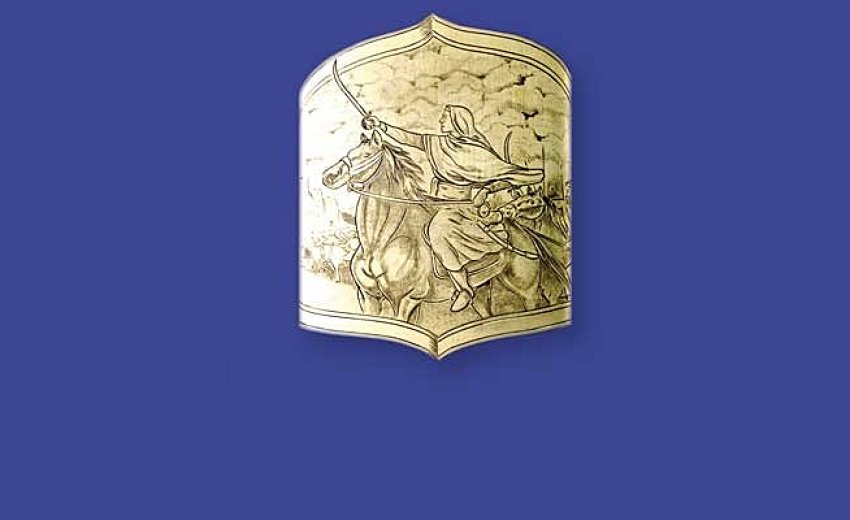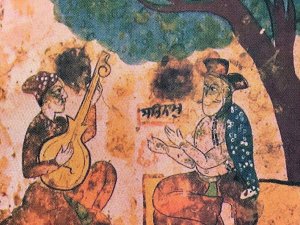It is often said that we are not human beings having a spiritual experience. Rather, we are spiritual beings having a human experience. T. Sher Singh’s new book, The Lion & The Princess, expresses such a Voice: the voice of a playful, probing, exuberant spirit sampling the myriad delicacies of human existence.
In The Lion & The Princess, our self-knighted hero gives the reader a glimpse into his life’s journey. Not from the perspective of trying to create some final, declarative statement about the nature of life. But rather to explore the themes of emotion, challenge, discovery and maturity through the very human lens of personal memory.
These stories are rich in detail and ripe with wonder. And it is this union of vibrant story with a sharp philosophical curiosity that makes The Lion & The Princess worth the read.
Especially poignant are T. Sher Singh’s stories from his youth, growing up in Bihar, in the old City of Patna Sahib:
“....in the land of Buddha and Mahavira, of Chandragupta, Ashoka and Chanakya, where Sita was born and where the heroes of the Mahabharta gambolled...But the clincher for my ego was that I was born not far from the birthplace and neighbourhood of young Gobind Rai, the son of Tegh Bahadar who later succeeded his father as our Tenth Guru. He is the one who would become the sixth soul to take Amrit on the historic First Vaisakhi Day, and be transformed into Gobind Singh.”
As T. Sher recounts his childhood and youth, a mesmerizing tableau of life in post-Partition Punjab emerges. While these stories reflect T. Sher’s boyhood experiences, there is no escaping the unique political and cultural backdrop in which these experiences unfolded.
“I also remember the commotion and the massive mess and operation around the building of a grand new, monumental gurdwara beginning around the time I was barely four years old. Yes, my memory from my earliest days remains sharp. I remember the regular visits to do seva as volunteers from across the country came in droves to help in the construction.
I vividly remember the hullabaloo around the arrival of Yadvinder Singh, the then Maharaja of Patiala – the late father of Amrinder Singh, the current Chief Minister of the State. It had stirred the imagination of all Indians that a Prince would dirty his hands and soil his clothes to person-
ally carry cement and bricks up the scaffolding. It seemed to give everyone added fervour. I remember the electricity in the air while he and his entourage did their seva mingling freely with the rest of the workers.”
Other stories from T. Sher’s youth bring into focus the dangers rippling just under the surface of the times in which he grew up. When the province’s Minister of Education visited his father’s store to purchase tires for government cars, the scene takes us through the extraordinary politeness of a commercial exchange to the severe threats of violence that could accompany a deal gone wrong.
“Tea was ordered for the entire entourage and small-talk lasted until the last drop. As a by-the-by, the Minister asked if the store had any tires in stock for his cars. Parked outside, each of the three vehicles was an Ambassador, the car-brand then favoured by the Indian politicians because they could easily squeeze-in well over a dozen men into each. Car tires were then in dire shortage and sold at a high premium because demand far outstripped supply. My Dad said he’d be glad to be of service.”
But when T. Sher’s father refused to sell the tires to the Minister based on credit, the situation became volatile.
“The Minister was getting a bit agitated and raised his voice. ‘You don’t trust me? You can’t take my word? Don’t you know who I am?’
I snuggled closer to my father’s chair. I could sense that things were taking a turn for the worse.
‘No, Minister Sahib. Most respectfully, we just don’t do business this way. Your assistant knows this, he’s been here before. The whole town knows about it. We’re quite firm about it. It has nothing to do with you personally, Sir. I have the utmost regard for you. But the tires must stay here until they are fully paid for.’
The Minister stood up. The others had come into the store and were now crowded around the door. His voice was raised and had begun to splutter.
‘No one is going to remove those tires from my cars, do you understand? You Punjabis! You dare to come to live in my land, do business here, and then show me such disrespect. How dare you. I will simply not allow it!’ He huffed and puffed, shuffling from one foot to another.”
As a spiritual archeologist, I consider these scenes in the book rare treasures. It is one thing to read intellectual analysis of the challenges the Sikh community has faced in the 20th century. But these complex moments of memory paint a much more vivid picture - filled with subtle and shifting emotion, with bravado and uncertainty, with love, and the threat of loss. It is in such emotional imprints that history actually lives. T. Sher Singh has done a beautiful service for the Sikh community in writing these memories down, so the spirit of the time and place in which he was raised can be remembered, in all of its humaneness, into the future.
There are many other types of essays in the collection, of course. Stories of T. Sher Singh’s adulthood and family life, after leaving Punjab and moving to Canada. Reflections on the spiritual values and practices enshrined within the Sikh tradition. Freedom Doesn’t Come Easy is one particularly moving essay, involving Morocco, a dove, an angry mob and T. Sher’s teenage daughter. You will have to read the book to find out what happens.
Taken as a whole, however, there is a deeper meta-story within the collection of essays. The story of how, in the 20th century, an incredible people with a profound faith, took the arduous road of leaving their traditional homeland, and finding a voice and a place for themselves and their future generations in the West.
T. Sher Singh has had multiple careers: author, lecturer, litigation lawyer, police commissioner, editor, publisher, and journalist, including stints as a national current-affairs columnist, travel writer, television host and radio commentator. He is also the founder of the online magazine sikhchic.com.
The Lion & The Princess is available through Macauliffe Books. List price: $25.00.






